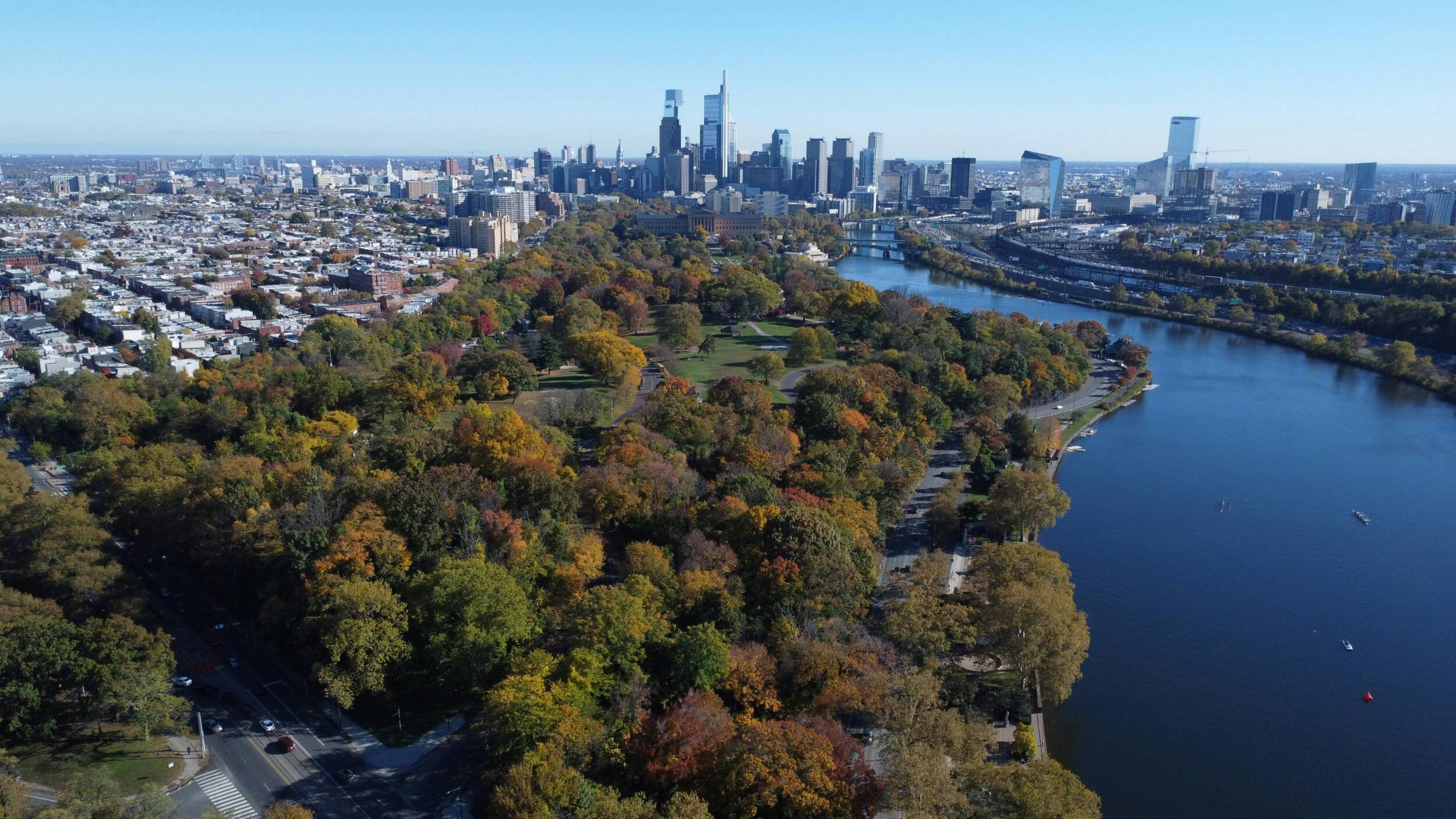
An interview with Nidhi Krishen – 4/24/2024
Energy Justice in Philadelphia – An interview with Nidhi Krishen, Deputy Director of Climate Solutions at the City of Philadelphia Office of Sustainability
Can you tell us about your role at the Office of Sustainability?
Nidhi: The Climate Solutions team is responsible for advancing solutions and actions to reduce Philadelphia’s emissions, underpinned by our values of racial equity and environmental justice.
What are Philadelphia’s sustainability goals and how does your work feed into them?
Nidhi: The City has a goal to achieve carbon neutrality by 2050. A key focus area of work is energy use in the city’s buildings, which account for the largest share of Philadelphia’s carbon footprint. The Climate Solutions team uses policy and planning tools to advance actions to ensure that the city’s buildings use energy as efficiently as possible and begin the transition to clean sources of energy.
What is the role of energy and climate justice in Philadelphia’s energy future? What does energy justice look like for Philadelphia’s energy-burdened communities?
Nidhi: The clean energy transition is key to achieving our carbon neutrality targets. To achieve these targets, we must support actions for energy efficiency and adoption of clean energy technologies in our buildings to provide heating, cooling, and electricity. However, we must ensure that these actions are centered in principles of racial equity and climate justice.
All Philadelphians do not experience climate the same way. The city’s historically marginalized communities are disproportionately impacted by climate impacts today, they are more likely to be impacted as climate change accelerates, and they are least resourced to protect themselves against these impacts. To ensure that the city’s clean energy transition is equitable and just, the city’s most burdened communities must be prioritized and resourced to participate in and benefit from this transition.
How does the Office of Sustainability engage with and involve local communities, especially those disproportionately impacted by energy challenges, in shaping policies and programs?What initiatives and solutions are the Office of Sustainability pursuing to advance energy justice for Philadelphians, etc.?
Nidhi: The Office of Sustainability works with community partners, particularly in our burdened communities to engage residents to understand their lived experiences and perspectives regarding energy access, and design and develop solutions and actions that address the challenges that these communities experience. This includes supporting partners implementing energy and housing programs, particularly for low-middle income Philadelphians, advancing equitable policies to drive action, advocating for support from the Commonwealth, and strengthening the city’s partner network for scaling action.
What are the biggest obstacles to achieving energy justice in Philadelphia?
Nidhi: Philadelphia is not alone in facing challenges to achieving energy justice. Challenges faced at all local, state, national and global levels include expanding the work at scale and speed to address the urgency of needed action on climate change.
How would you assess Philadelphia’s progress toward achieving energy justice and more equitable climate solutions to better serve energy-burdened communities?
Nidhi: Philadelphia is fortunate to have a strong eco-system of organizations providing innovative and transformative solutions to achieve energy justice, which include whole home repair programs such as the Basic Systems Repair Program and the Rental Improvement Fund offered by the City, the Built to Last and Solarize Philly programs offered by the Philadelphia Energy Authority, the work of the Philadelphia Green Capital Corp, the city’s green bank and the well-established work in low-income communities being performed by the Energy Coordinating Agency (ECA).
What policy changes or advocacy efforts are needed at local, state, or federal levels to advance energy justice and climate equity in Philadelphia?
Nidhi: Key areas of need include advocacy and policy that ensure our buildings are built to be and operate in a way that minimizes their carbon footprint as much as possible. This includes building codes that ensure that buildings use energy as efficiently as possible, use clean energy for functions such as heating and cooling, and take advantage of distributed energy resources such as rooftop solar, where feasible.
How can organizations and individuals support energy justice initiatives for Philadelphians?
Nidhi: Organizations and individuals can first ensure that they are participating in the clean energy transition by examining how they are using energy. An energy audit may be a good place to start to understand how an organization or individual is using energy in their business or their place of residence, and then where feasible, exploring solutions to improve how energy is being used. They may also participate in advocacy and policy making at local, state, and federal levels to support adoption of equitable climate action and energy justice initiatives.
